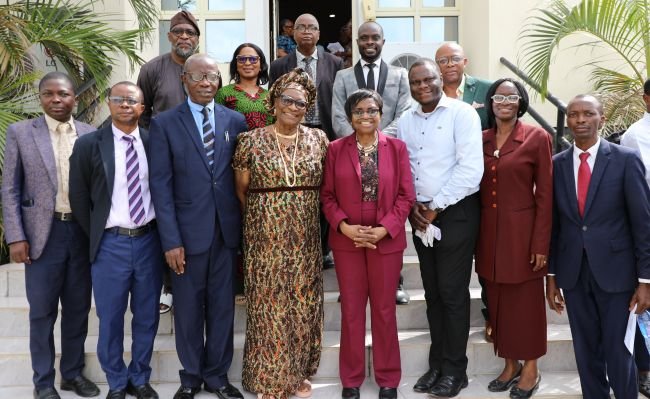The National Agency for Food and Drug Administration and Control (NAFDAC) has launched a pilot Research and Development (R&D) collaboration programme designed to spark innovation through partnerships between universities and pharmaceutical manufacturers.
The initiative was unveiled by NAFDAC’s Director General, Prof. Mojisola Adeyeye, during her keynote address at the 38th Prof. Victor Olufemi Marquis Memorial Lecture held at the Faculty of Pharmacy, Obafemi Awolowo University, Ile-Ife, Osun State.
“The programme would not only boost drug availability but also create employment, improve healthcare delivery, and raise the nation’s GDP through expanded industrial capacity.”
According to Prof. Adeyeye, the pilot programme will allow selected pharmaceutical companies to partner with universities of their choice on targeted R&D projects, driven by specific industry needs. “This academia-industry linkage is not just desirable—it is essential for national survival,” she declared. “We must build a platform where joint planning and implementation can drive mutual benefits.”
She added that the partnerships would be governed by formal Memoranda of Understanding (MoUs) and confidentiality agreements to protect proprietary knowledge and ensure regulatory compliance. The NAFDAC boss said universities are ideally positioned to provide both technical skills and innovation, while the pharmaceutical industry brings real-world challenges and commercial know-how. She emphasized the need for universities to focus research on tangible outcomes that can be commercialized to solve pharmaceutical problems. “R&D is not a luxury; it is a necessity for national health security and economic growth,” she stressed.
Prof. Adeyeye cited the agency’s Five Plus Five Regulatory Directive, which mandates local production of certain pharmaceutical products after two registration cycles, as one of the drivers of increased domestic manufacturing. “About 30 percent of new or rebuilt local manufacturing companies in Nigeria today are a result of this policy,” she revealed.
She called on academia to take the lead in areas like vaccine development, bioequivalence studies, and technology transfer. “Let us produce what we need for ourselves and export the surplus,” she said. “We must be proud of Nigerian-made products—they are of better quality now because of a stronger regulatory system.”
The Director General also stressed the importance of self-reliance in the aftermath of the COVID-19 pandemic, warning against continued dependence on foreign donations. “God has given us so much talent that is being wasted,” she said.
She described the pilot initiative as a pivotal step toward achieving national health sovereignty.
Prof. Adeyeye concluded with a call to action: “Nigeria has the talent, the partnerships, and the regulatory framework. Now is the time to unlock our R&D potential and secure a healthier, more independent future.”



